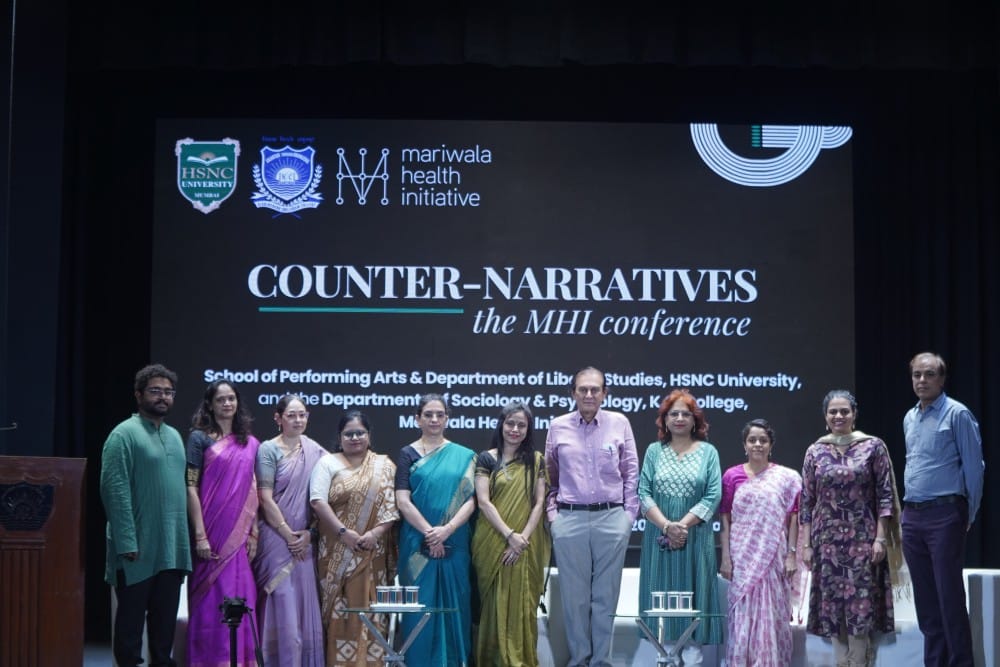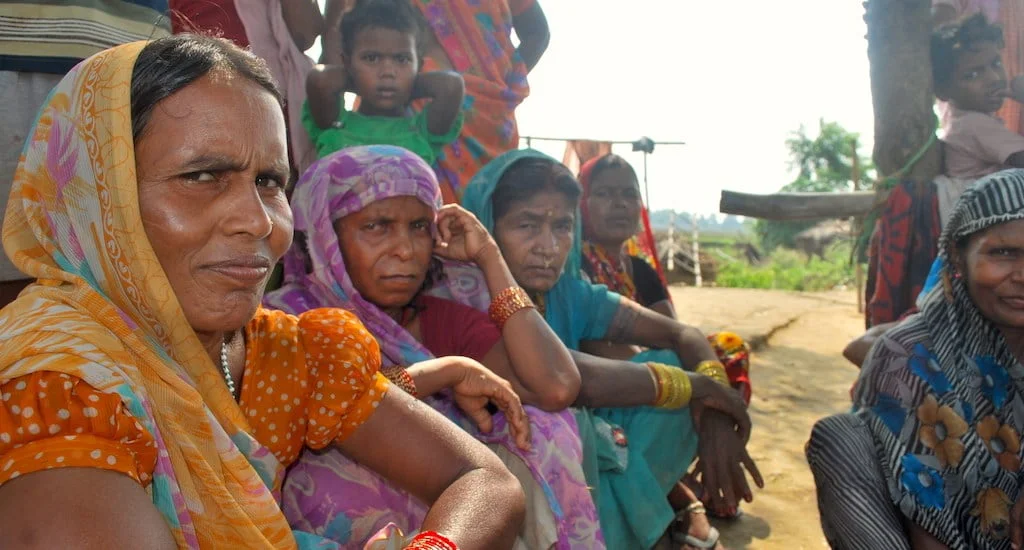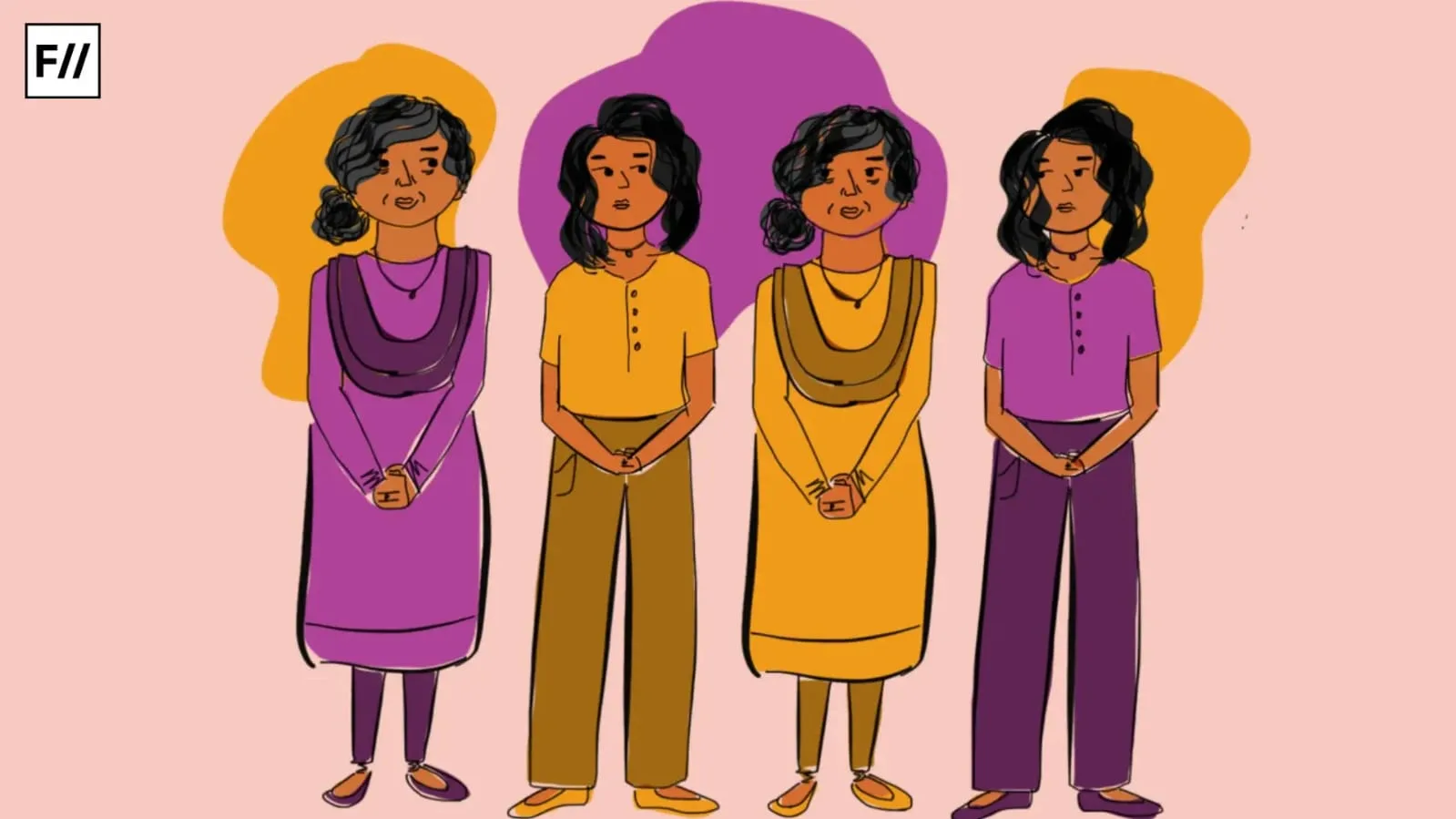The first-ever Counter-Narratives: The MHI Conference brought together voices from across India to challenge dominant mental health narratives and centre lived experiences. Jointly organised by Mariwala Health Initiative (MHI), HSNC University and KC College on 7th and 8th February, the event underscored the intersections of mental health, caste, gender, sexuality, disability, and systemic marginalisation—themes that are often overlooked in mainstream discourse. Over two days, the halls of K.C. College, Mumbai buzzed with dialogue, reflection, and a collective sense of purpose.
Over two days, the halls of K.C. College, Mumbai buzzed with dialogue, reflection, and a collective sense of purpose.
What set Counter-Narratives apart was the diverse exchange of knowledge—mental health professionals, activists, and students in the audience were actively listening and learning from clinicians, social workers, and activists who work directly with marginalised communities. Discussions featured those who practice outside traditional clinical settings, integrating principles of equity and anti-oppressive frameworks in their work. The conference also provided a platform for individuals with lived experiences to share how systems have failed them and what must change for a more just and inclusive mental health ecosystem.
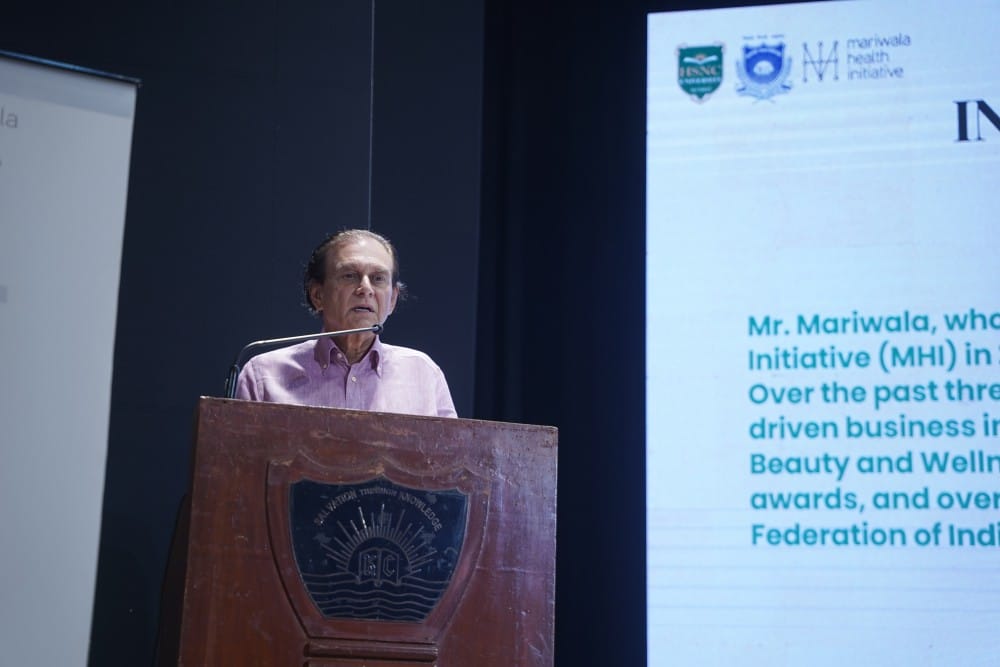
Opening the conference, Harsh Mariwala, Founder of MHI, set the tone for the conversations ahead:
‘This conference is about building networks for collective action with long-term change in mind. Together, we can create knowledge that shapes the future of mental health in India and beyond. Let’s imagine an ecosystem that is inclusive, accessible, and community-driven—one that prioritises people, their stories, and their wisdom.‘
This was followed by the opening plenary by Deepa Pawar – founder of Anubhuti Trust. She spoked of how mental health mainstreaming is elite and privileged. Mental health is seen as individual when there are systems that affect communities and individuals.
A major takeaway from the conference was the role of lived experiences in reshaping mental health discourse. One attendee noted:
‘Lived experiences of others counter the dominant narrative and provide for an inclusive space.‘
The panelists represented diverse genders, sexualities, castes, religions and geographies, bringing a wide range of lived experiences and perspectives to the discussions.
The panelists represented diverse genders, sexualities, castes, religions and geographies, bringing a wide range of lived experiences and perspectives to the discussions. Discussions explored systemic sources of mental health concerns highlighting the need for rights-based, community-led, intersectional mental health care.
Mental health, identity, and systemic oppression
On the first day, panelists examined how mental health is deeply intertwined with social, economic, and political structures. A discussion on queer mental health explored epistemic injustice and the erasure of LGBTQ+ identities in mental health care. Wrapping up this powerful discussion, moderator, host of the conference, and mental health consultant at MHI Pooja Nair stated, ‘Certain identities have existed in the clinic as objects of cure and we cannot forget that heteronormativity also stands in service of other systems of oppression such as caste.‘
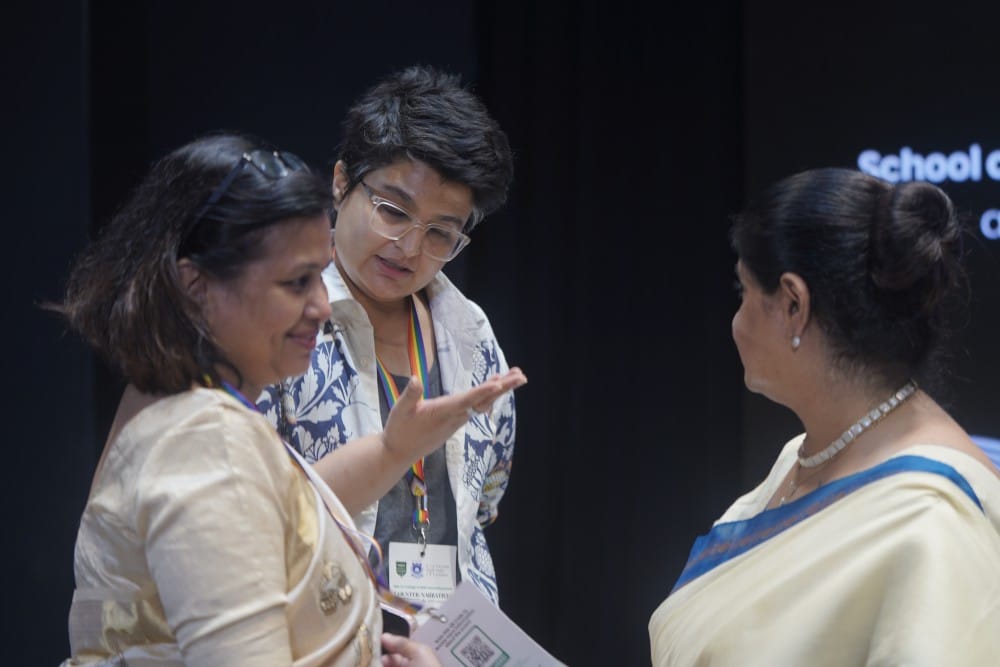
A session on caste and mental health, moderated by Prof. Suryakant Waghmore, addressed the psychological toll of caste discrimination, the well-being of Adivasi tea garden workers, psychosocial care for Dalit rape survivors, and the need for caste-informed psychotherapy. Panelists spoke of how the need to address the stigma faced by survivors and families alongside legal recourse as well as compensation for mental health cannot be separated from the idea of mental peace. Sharing their thoughts on the panel, an attendee remarked: ‘It’s not just about lifting one community but when we don’t shy away from spreading awareness, it pushes everyone to move forward.‘
The final session of the day explored neurodiversity as both identity and movement, systemic exclusion in mental health, and the psychosocial model of disability. It discussed how mental health frameworks often reinforce rigid norms of productivity, making it difficult for neurodivergent and disabled individuals to access support. Moderator Amalina Kohli Dave brought together the discussion with closing remarks, ‘Many narratives come together to form mainstream narratives, or, they try to tell the story of the normalisation of human experience. When that dominant narrative forms, it becomes less personal, and is economically and politically deployed.‘
The first day was wrapped up with the screening of The Wounds of Pyre, a powerful documentary funded and supported by MHI, that explores the realities of the Dom community, who, for centuries, have borne the burden of being society’s cremation workers.
The first day was wrapped up with the screening of The Wounds of Pyre, a powerful documentary funded and supported by MHI, that explores the realities of the Dom community, who, for centuries, have borne the burden of being society’s cremation workers. Through personal narratives and lived experiences, it sheds light on the societal structures that perpetuate this exploitation while bringing to light an often-ignored but critical issue: the mental health challenges faced by Dalit communities. This was followed by a discussion led by Gauri Shringarpure – faculty of MHI’s Queer Affirmative Counselling Practice course, with the filmmakers, Babita Gautam and Sahil Valmiki, who shared insights into their creative process, the ethical challenges of storytelling, and the role of media in amplifying lived experiences.
On day 2, a compelling discussion, moderated by Tashi Choedup addressed the mental health struggles of trans and intersex individuals. The conversation explored how migration shapes identity and resilience, the erasure of trans-masculine and intersex people in healthcare, and the need for affirmative policies and holistic mental health approaches. Closing the conversation, Tashi stated, ‘Looking at Queer-Trans [QT] folx as messiahs to break gender sexuality binary isn’t feasible. All of us even as QT folx can break binaries but we also hold them, we recognise this as a prison but need cis-folx to see it as a prison so that we can collectively break out of it.‘
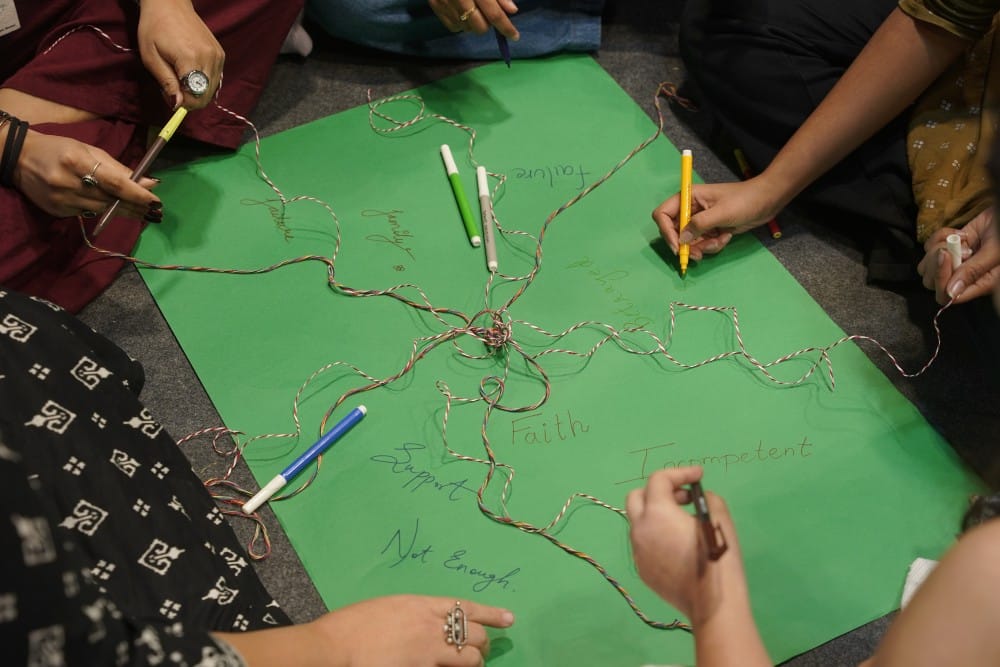
This was followed by a session on majoritarianism to dissect and understand the marginalised religious identities along the sociopolitical Indian structure, and the structural determinants and inequities. The discussion ranged from grief and mourning in Kashmir, subtle discrimination faced in urban spaces, and gendered violence against Muslim women in India. Wrapping up an incredibly complex panel, moderator Sabah Khan said, ‘The issues raised are structural but are seen as individual. It’s also really difficult to compartmentalise our identities – particularly when being a minority in a minority.‘
During lunch, a unique workshop ‘Knot Alone: Weaving Connections Through Creative Expression’ was conducted by Ipshita Chatterjee, founder of Thehraav: Unwind Your Mind – an intersectional, feminist, trauma-informed and queer-affirmative mental health organisation. Through words, visual arts, movement and creative expression, the session explored themes of visibility, self-discovery, and belonging.
The final panel discussion of the conference examined how mental health is deeply intertwined with structural inequities and dominant therapeutic frameworks that often fail marginalised groups.
The final panel discussion of the conference examined how mental health is deeply intertwined with structural inequities and dominant therapeutic frameworks that often fail marginalised groups. It highlighted the need for an intersectional lens in therapy and the importance of questioning neutrality in mental health spaces, along with the need for embodied healing practices to become more queer-affirmative and inclusive, ensuring that mental health care acknowledges the social and systemic barriers individuals face. Moderator Prof Amrita Joshi wrapped things up with, ‘Institutes that hold power but also therapists who are in that space need to examine that power & privilege – it’s not linear, neat or clean but in fact messy & continuous & with that we hold the ability to create connection & hope.‘
A call to action
Closing the two-day event, Dr Aparna Joshi from TISS, left us with an important reminder, ‘As mental health professionals it’s time we stop labelling communities as ‘hard to reach’ and start seeing ourselves as the ones who are inaccessible.‘
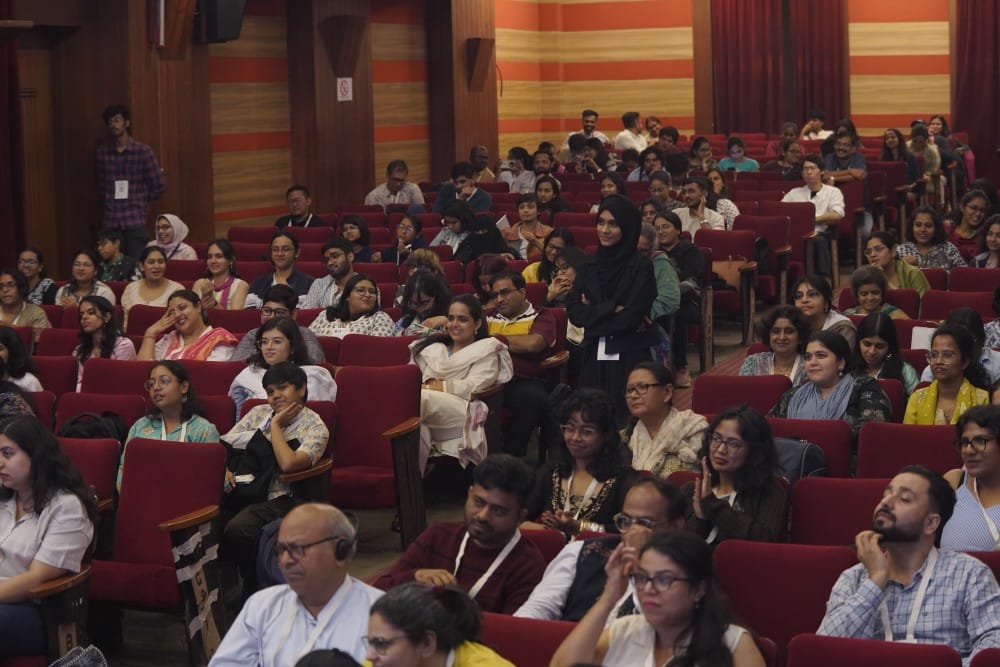
The conference reinforced the urgent need for a paradigm shift in mental health discourse. Attendees reflected on the role of collective action in challenging dominant frameworks and fostering inclusivity. One participant captured the essence of the event: ‘Will forever hold on to the collective responsibility of examining discourses and questioning and countering narratives.‘
Looking ahead
MHI remains committed to fostering community-led mental health initiatives. To this end, it will continue to work on expanding funding for marginalised-led projects, advocating for intersectional policy changes, and creating more platforms where lived experiences drive mental health research and practice.
As Harsh Mariwala emphasised: ‘Investing in community-led efforts is crucial because lived experience is key to mental health research and practice.‘
The conversations sparked at Counter-Narratives will resonate far beyond these two days—inspiring action, advocacy, and systemic change.
About the author(s)
MHI is a funding agency for innovative mental health initiatives, with a particular focus on making mental health accessible to marginalized persons and communities. MHI’s goals include reaching out to marginalized populations and communities, in order to alleviate their mental health concerns, as well as capacity building for individuals, organisations, communities, and institutions through training, building networks, and knowledge sharing.
